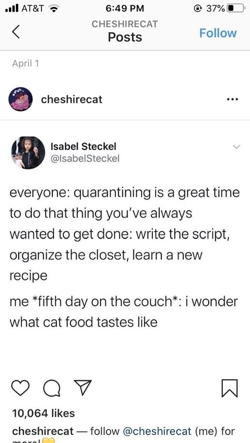
We are living in one of the most tumultuous times in living memory. For many of us the flurry of adjusting to online education was enough to deplete our reserves. Then came the void of summer and the challenge of mustering momentum. And now, at this moment, we are called to action. Now is not a time to lie around listless. The killing of George Floyd brought America’s attention once again to the reality that systemic racism is as real as ever.
While our nation erupted in protests, I had just put the finishing touches on an article about how to set healthy rhythms in a pandemic-affected summer. Together with the editor of The Well, I considered setting this article aside. We do not want to detract from the important cries for justice that ring out across our nation. But we also realized that now more than ever, we need practices that build perseverance and fortitude. As President Obama reminded us last week, “If, going forward, we can channel our justifiable anger into peaceful, sustained, and effective action, then this moment can be a real turning point in our nation’s long journey to live up to our highest ideals.”
And so I offer here some nitty-gritty advice on how to set faithful daily practices in times such as these. It was originally written for my students, but now it feels all the more necessary for learners of all ages, myself included.
Dear fellow learners,
Congratulations for finishing the weirdest semester of our lives. Now as the paper-writing, exam-studying fog clears from your brain, this question likely turned up: What on earth do I do now!? You may be working at Home Depot instead of your internship in Peru. You may be jobless and vacuuming your parents’ living room to feel worthy of their groceries. Waiting, disappointment, and uncertainty might fill every nook and cranny of your life. If you thought this semester felt strange, well, just wait — without school to keep you chugging along, these next weeks might just feel even stranger. 
A student recently showed me a tweet that describes what many of us are facing. (See image at right.)
The closure of school routines ordinarily spits students and faculty into the all-consuming summer activities of internships, research, traveling, and summer jobs. But this summer many of us find ourselves with less routine, accountability, or certainty than ever. Even if you leapt into action with creativity three months ago when you adjusted to sheltering in place, the new habits you started then are growing stale. It’s time to regroup.
And so, I’d like to offer you a syllabus for a recommended summer course titled:
“How not to contemplate cat food.”
Course grading. This is a no-credit, self-graded course. In my experiences as a professor, ungraded assignments usually don’t go all that well. It’s too easy to skip them in favor of couch-lying and cat food contemplation. But I suggest you think of it like this: in place of a grade, in this course your success will be measured in well-being. Working for well-being instead of grades might take a little mental switch from the training you’ve had for the last 13+ years of schooling, but this is how real life works, so you might as well get used to it. You won’t regret it.
Attendance. In this course, you will need to show up every single day. One hundred percent attendance is mandatory.
Course requirements:
Make rhythms. It doesn’t take much musical training to know that music without a time signature is not recognizable as music. We need regular repetition. Everything in us screams for it, from our heartbeat to our internal circadian clocks to our need for weekly sabbaths and seasons. As the scholar Pierre Bourdieu told us, we are creatures of habits. Creating rhythmic habits will carry you off the couch when you run out of logical reasons to get moving. What should those rhythms include? Glad you asked. Read on.
Sleep. At night. On schedule. Plentifully. If you need a reminder why, read this book, which explains that sleep is quite literally what keeps us from being apes.
Eat breakfast. I know, I’m being a mom here, but scientists have yet to discover a way to live that doesn’t include meals. I find my brain doesn’t do well with decisions soon after stumbling out of bed, so I recommend a routine. I eat oatmeal three days a week or whenever I can’t get my brain to think of something better. My husband eats eggs every single day. Do what works.
Get outside every day. Again, the research on this is undeniable. When your senses register sunlight and nature, you get endorphins, which means happy-chemicals.
Contemplate. I’ve heard that Yurok Indians have a saying, “Take time to do your thinking.” I posted that in my bathroom so I won’t forget. I recommend starting and ending the summer with a retreat day to take time for your thinking. Set aside a big chunk of time (like, say, six hours) to shut off screens. Be in silence. Listen, read, pray, journal, and write down some future goals. Keep some micro times like these on a regular basis.
Find inspiring heroes. Now more than ever, we need heroes. Find an ebook or a documentary on somebody who lived through times as hard as these. My recent favorites include Dorothy Day, Martin Luther King, Jr., Winston Churchill, Julian of Norwich, Oscar Romero, and Howard Thurman. Or try interviewing somebody, even if it’s by phone call. I recommend an octogenarian you knew growing up, or a person whose life experience appears at first glance very different from your own.
Create something good. This may be the first time in your life when you confronted the question, Why do I work? Up until now, the go-to answer has been something like because my teacher said to, or to earn money, to get experience for a better job, or because I feel like a bad person if I don’t. Let me suggest this answer: Because it gives life.
We are created by a creating God to be creators. Like eating and sleeping, creating quite literally stirs and maintains the life of our body and soul. (Want to ponder this more? Read this or this.) If getting paid or internship credit isn’t an option, you’re not off the hook. I know, you’re not Sir Isaac Newton discovering gravity and or Shakespeare writing King Lear. But you are still made to make good things. A phone call. A birthday card. Crackers and cheese. A poem. Oatmeal. A dance. A protest sign. An instagram post. A long journal entry about the meaning of hope. Even if nobody sees it but God. But you get extra credit if you share it, because you also need to...
Make space for a full range of emotions. While God made us to be creators, that does not mean our value is determined by productivity. In this time especially, give yourself space to grieve for the evidence of sin and loss. Be gentle with yourself. Don't worry if your best-laid plans and routines don’t go perfectly every day.
Help somebody. One of the beautiful outcomes unfolding since this pandemic is that more goods and services are being shared not just for selfish get-me-money motives, but in what anthropologist Marshall Sahlins called generalized reciprocity — giving without expecting back. Economic anthropologist David Graeber calls this logic of giving “everyday communism” — not communism like overthrowing the government, but a non-marketlike mentality that involves sharing from each according to their means, to each according to their need. This tends to happen in catastrophes like snowstorms when people plow their neighbors driveways, and happened in the past months as we hung signs for essential workers and dropped off toilet paper at our neighbor’s doors. There are a thousand ways to help somebody, from delivering groceries for a food pantry to fixing your parents’ windshield wipers to tutoring kids online to advocating for social reform. Research says this produces those happy-chemicals, too. More importantly, it’s how the Kingdom of God works.
Learn something big. Pick something you always wanted to learn. Match the difficulty to the amount of time you actually have. Consider choosing at least one skill that will give you the satisfaction of completing something tangible, because changing the world is slow and we all need reminders that accomplishment is possible. I’ve enjoyed woodworking, home electrical wiring, and patching ripped jeans, but it could be anything: plant identification, antique refinishing, calculus, print-making, kiSwahili, making sense of the Federal Reserve, or COBOL. With online libraries and Khan academy, you are rich. If someone within your social distancing circle can teach you in person, all the better. If in doubt, ask a prof for a reading recommendation — professors eat that up.
Laugh with a human. Not just a YouTube video, a live human who sees you and reflects back your emotions with you. Need ideas on how? Try wearing a costume and delivering a friend a cake. I’m sure you’ll find a way.
Say thank you. Say it out loud to someone. Or write a list in your journal. Or pray it. Or whisper it before you go to sleep. And yes, sleep. Even smack in the middle of Lamentations, we learn that blessings are new every morning.